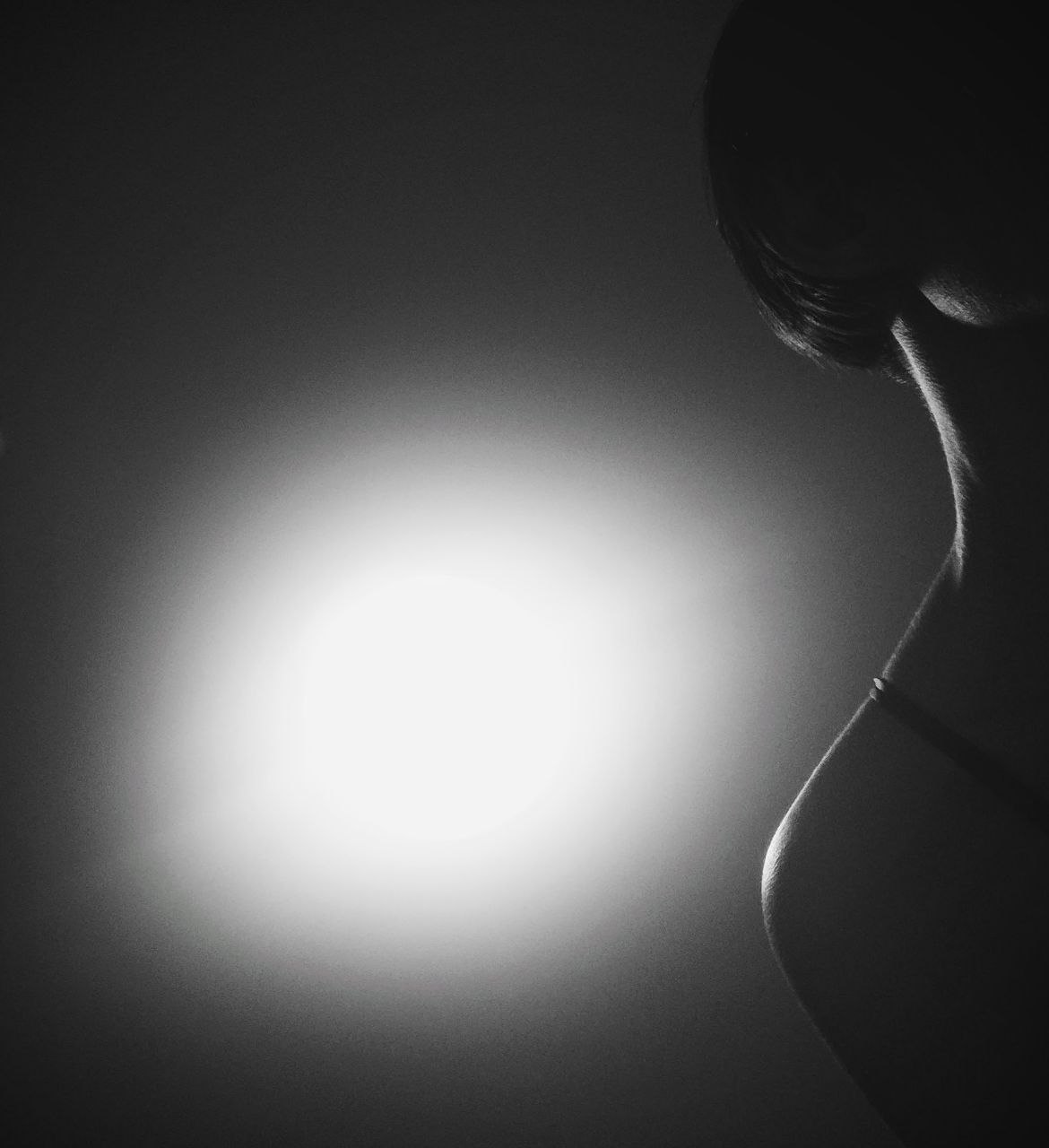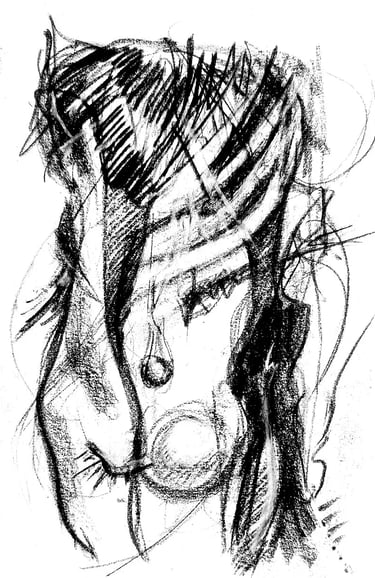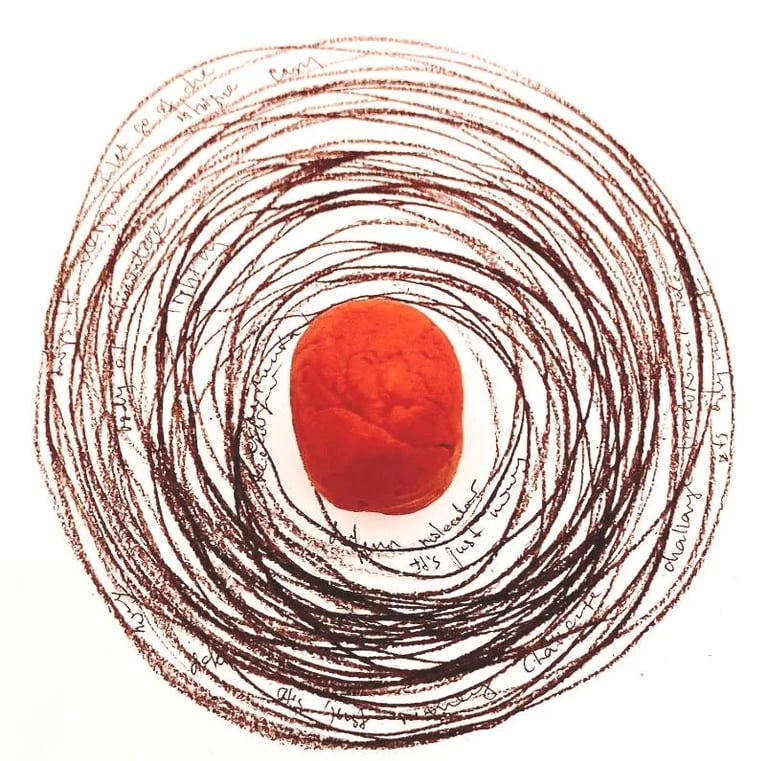Add your promotional text...
The Eclipse Method
If the mind is the last to know


"The mind is the last to know," said Bonnie Cohen, founder of Body-Mind Centering.
She meant that our nervous system and brain only recognize and record changes after they've already happened and been lived through by the body. This very process of living through transformation can feel like "some weird shit is happening."
Today, during a total lunar eclipse, weeks after turning forty in August, I've been observing an interesting transition in myself and listening to friends navigate their own crises.
Age-related crises are just transformations we resist. When "the old way no longer works, but I don't know how to do it the new way" — there's a strange and unpleasant period of zeroing out, confusion, lostness.
This is a period when we need to be (like an egg in somatics). However, this is unclear and unfamiliar, little practiced or encouraged in our culture, where we often need to prove and do (like sperm). In Western culture, 'doing' is rewarded as a masculine function while 'being' is seen as lazy and unproductive — a 'feminine' function. This points to how little we understand of cycles and nature, which cannot be producing all the time.
Such periods often come after some intensive self-work: practices, retreats, and other attempts to change. And as the final prize, we get emptiness, not delight in our new personality. I'm experiencing this now, weeks after my fortieth birthday, but here's what's fascinating: this crisis connects somehow to my fourteen-year-old self.
Our brains don't store experiences chronologically but in associative networks, meaning current transitions can activate unresolved patterns from decades past. In Chinese medicine and Taoist philosophy, life unfolds in seven-year cycles, with each new stage revisiting and resolving themes from earlier phases. The body holds cellular memory of past experiences, which surface during significant change regardless of when they originally occurred. We don't know in what layers and spirals our life and experience were recorded, but we know for certain this process isn't linear and doesn't follow the calendar.
Sometimes crisis comes in the form of love — a dream materialized in the body of a man or woman who seems like they could change our life exactly in the direction we're afraid to live. Then, upon later examination or after parting, you can see there was more dream than actual person. And what's beautiful about this is that we created something new through our desire for change, but perhaps haven't yet reached the end.
We often do fall for people who represent disowned aspects of ourselves, using relationships as laboratories for self-transformation. Adults, like children, use relationships as "transitional objects" during major life changes, providing stability while internal reorganisation happens. And that intense longing actually rewires neural pathways, preparing the brain for new experiences even before they manifest.


There's a concept called "vacío fértil" — fertile emptiness, where the new is conceived. Just as a child isn't born immediately (after orgasm), our new personality parts mature and come to replace the dying old ones. This often accompanies grief rather than celebration, because we know and love the old parts, we've already got used to them, even if they pinch and are no longer in season.
In embryology, some of our organs and systems don't die but dissolve to allow new ones to appear. Our kidneys develop in three stages: the pronephros (first kidney) forms and then disappears as the embryo grows. Our reproductive system is initially doubled until the embryo's sex is determined, and the second pair is "reabsorbed" back. Even in healthy brain development, half of all neurons undergo programmed cell death to create more efficient neural networks — what biologists call apoptosis is essential architecture, not destruction.
The most dramatic example might be butterfly metamorphosis: caterpillar tissue completely dissolves into what scientists call "imaginal soup" before reorganizing into wings and antennae. The void is literally creative. I've observed in my own cycles and those of clients how we naturally move through periods of high energy and dormancy, with "hibernation" phases being essential for renewal. Jung wrote about how individuation requires regular ego deaths, the psyche periodically dissolving old identity structures to birth more integrated ones.


I like reading my journals over the past twenty years, opening them on the same dates — the stories repeat, and sometimes I find so much wisdom there I'm surprised I could have written such things.
I'm learning not to resolve my crises but to yield into them, inhabiting the space between things, between feelings, enjoying the spaciousness of in-betweenness. If the mind is the last to know, then perhaps 'not knowing' is the most natural and intelligent way to be.
I explore these somatic approaches to transition in my workshops. If you’re curious, consider subscribing to my newsletter.
